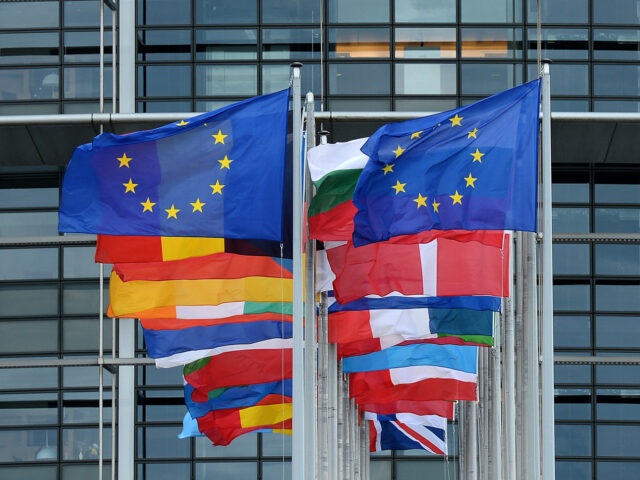A push to get internal EU migrants to vote in the elections of other European countries is designed to “muffle” the voices of locals living in those nations, an MEP has claimed.
Dr Gunnar Beck of the populist Alternative for Germany party (AfD) has told Breitbart Europe that a push towards getting more migrants from within the bloc to vote in the local elections of other countries is an attempt by Eurocrats to undermine the link between nationality and democracy.
Although migrants with EU citizenship are technically already allowed to vote in both local and European elections while resident in a state that they are not a citizen of, the turnout of such ex-pat populations remains low across the bloc, with there seemingly being minimal effect on local politics in many nation-states.
Bigwigs in Brussels now want to change that, with the reportedly voting in favour of pushing for more internal migrants — which they euphemistically now call mobile Union citizens — to vote in the elections of other EU member states, and even to run as candidates within these countries which they are not a citizen of.
The parliament also pushed for election material produced in individual countries to be made available in different languages so as to boost foreign voter engagement, which one parliamentarian said would help the EU become “a real transnational pan-european democracy”.
However, speaking to Breitbart Europe, Dr Beck criticised this push to get more internal migrants to vote, describing the move as being another attempt to expand the influence of Brussels.
“This is an attempt by the EU to increase the political weight of the anywheres at the expense of the somewheres,” the German EU parliamentarian said, echoing UK political commentator David Goodhart’s idea that many Western countries are increasingly being split between a wealthy, mobile upper class and a more rooted, national-orientated lower class.
“By amplifying the electoral voice of those Europeans that don’t live and work in their country of origin, who tend to be richer, more resilient to economic crises, more pro-European and more pro-migration, the EU is attempting to muffle the voice of locals,” Dr Beck explained. “By erasing the link between nationality and the democratic right to vote, the EU is effectively erasing the demos. The somewheres, who don’t work in the well-paid and mobile tertiary sector, are the victim of this.”
The AfD parliamentarian also criticised the push to have election materials produced in foreign languages so as to get foreign migrants engaged in local politics, saying that such a move would work against attempts at integration.
“By requiring municipalities to inform non-national EU citizens about their right to vote and stand for election, the EU is actively hampering successful integration of migrants into the local social fabric,” Dr Beck said, criticising the measure.
“Requiring local administrations to adapt to the migrants is exactly the opposite of what is needed,” he added.
Other parliamentarians also outlined the push as creating significant logistical issues, with the requirement to translate election material into other EU languages likely to pose difficulties to many local legislatures.
“The obligation to translate almost all information regarding elections would put a significant administrative and financial burden on local municipalities,” Polish parliamentarian Joachim Brudzinski explained.

COMMENTS
Please let us know if you're having issues with commenting.